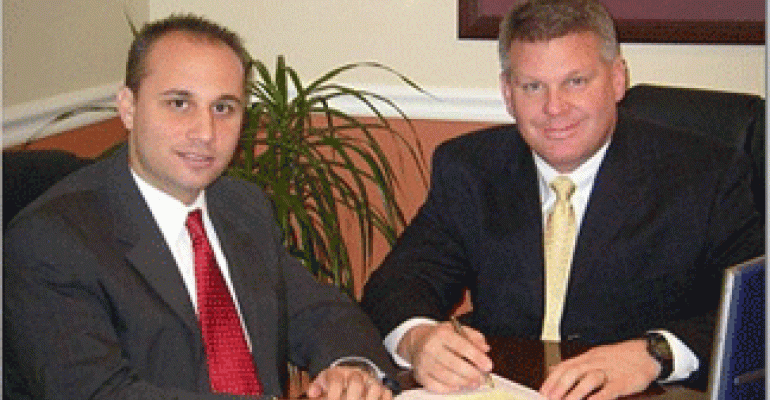
Partners Fillip Gershon and David Wren of Safe Harbor Financial are hoping to lure wirehouse advisors to the independent side of the business. Who isn't? The two recently expanded their office space in Wall, N.J., from four to nine offices and added a new conference room, but they still have a lot of empty seats. Gershon and Wren left Smith Barney to try out independence about five years ago, and today generate about $1.4 million in revenue on $130 million in assets under management. They're looking for advisors doing $200,000 in production and up, with about $25 million or more in assets. We spoke to them about their business.
Registered Rep.: What initiated the thought of going independent for you two?
David Wren: Every year, the wirehouse comes out with a payout. One July I remember in 2005, all of a sudden they cut the sales credit in half. The payout of 70 percent of production didn't change, but all of sudden they reduced the amount you were getting per transaction, so you were making half. In essence, they were trying to get people to switch to a fee-based platform, and when you started peeling back the onion, the independent model looked more attractive because you were taking double the pay home. We're running just as nice an office as a wirehouse from a service, look and operational standpoint, but it's costing us 10 to 15 percent of revenue. Now, 15 percent goes to running the office, while 85 percent goes in your pocket. At the wirehouse, we were getting 40 percent payout, but where is that other 60 percent going?
If the advisor can make more money, it translates into charging the client less. At Smith Barney, we were charging clients between 1.7 to 2 percent under their fee-based platform, versus 1 to 1.5 percent here. The wirehouse advisor needs to ask himself, ‘Am I getting 60 cents worth of value from this wirehouse?’
RR: What is the biggest challenge for advisors in going independent?
Fillip Gershon: The biggest challenge is to create an environment. It's an enormous undertaking in terms of moving over your book of business, setting up phones, getting an assistant, etc. Part of the reluctance is that all these things can shy advisors away from making the move.
RR: There's a big debate in the industry over the breakaway broker phenomenon. What's your take?
DW: Over the next five to seven years, that's where the industry's going — toward independence. When private equity firm Lightyear Capital was negotiating with ING for the purchase of its three broker/dealers last year, Lightyear's founder Don Marron was thinking that the independent platform was the place to be. During the negotiations, he pulled aside and said, ‘I just don't understand what's keeping these guys on the wirehouse side from not coming over to the independent side.’ I replied, ‘It's because they're not educating themselves.’
RR: What's the nicest thing a client has ever said to you?
FG: ‘The thing we feel most comfortable about with you guys is that we know you care.’
RR: What's your favorite place to conduct a client lunch?
FG: A local eatery — typically Italian or Sushi.




